MS-LS1-5
Construct a scientific explanation based on evidence for how environmental and genetic factors influence the growth of organisms.
-
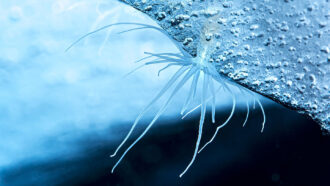 Ecosystems
EcosystemsA weird upside-down world lurks beneath Antarctica’s ice
A vast swath of ocean surrounds Antarctica, hidden under the ice. Here, strange creatures burrow into the dark underbelly of a floating glacier.
By Douglas Fox -
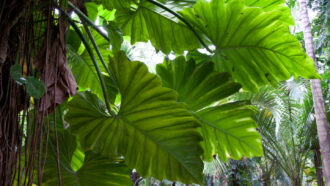 Climate
ClimateSome tree leaves are finding it too hot for photosynthesis
Earth’s ongoing fever threatens to push entire forests toward this heat limit — and possible death.
By Nikk Ogasa -
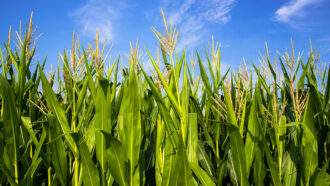 Plants
PlantsYoung corn leaves can ‘smell’ danger
As they mature, these leaves lose their ability to detect threatening scents.
-
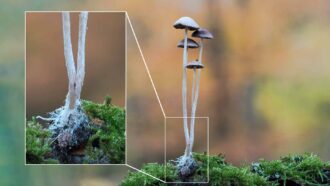 Life
LifeScientists Say: Mycelium
These fibrous networks are the reason plants think fungi are such "fun guys.”
-
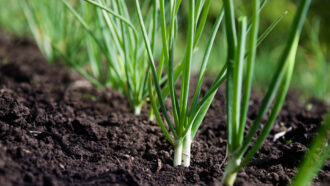 Environment
EnvironmentFungi help rescue crops being harmed by microplastics
Microplastics in the soil hinder plant growth. But two finalists at Regeneron ISEF found that fungi and farm waste can reduce the harm.
-
 Animals
AnimalsPokémon ‘evolution’ looks more like metamorphosis
Pokémon “evolve” into larger, more powerful forms within seconds, but this evolution more closely resembles another biological process — metamorphosis.
-
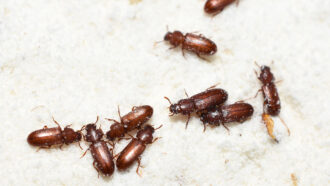 Animals
AnimalsThese beetles ‘drink’ water using their butts
Red flour beetles can survive in very dry environments. New research shows how the beetles can suck water from the air using their rear ends.
By Freda Kreier -
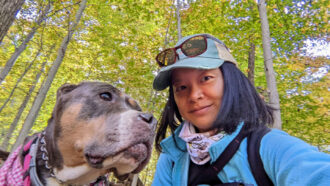 Animals
AnimalsThis biologist uses microwave radiation to save endangered species
Pei-Chih Lee works to preserve genetic material that can help researchers learn more about endangered animals, such as pandas and clouded leopards.
-
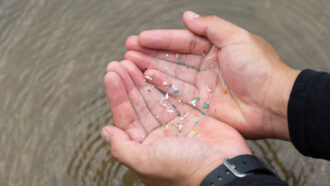 Environment
EnvironmentSea life may suffer as plastic bits alter metals in water
This interplay between plastics and metals could affect how each affects the environment — and suggests opportunities for controlling their risks.
-

These lemurs take nose-picking to a new level
A nose-picking aye-aye’s spindly middle digit probably pokes all the way into the back of the throat, CT scans show.
By Maria Temming and JoAnna Wendel -
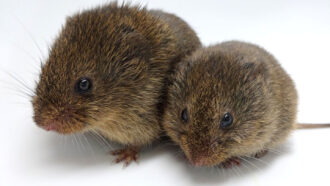 Animals
AnimalsPrairie voles can couple up even without the ‘love hormone’
Scientists thought the chemical oxytocin was required to make prairie voles mate. They were wrong.
-
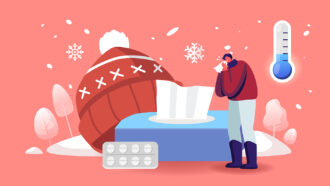 Health & Medicine
Health & MedicineExplainer: Why it’s easier to get sick in the winter
Low humidity helps viruses survive, and cold weather blunts some of the body’s immune responses — making colds and other viral infections more likely.